- Home
- Helen Dunmore
The Lie Page 2
The Lie Read online
Page 2
‘Is it Daniel?’ she asked. I nodded, then remembered she couldn’t see me and said, ‘Yes, it’s Daniel.’ It seemed as if she were searching my face, and then looking to my side and beyond me. I knew that she could see nothing. She said, ‘Who have you brought with you?’
2
Dead, disposal of: Bodies of dead men will be taken right away from the trenches to be buried.
It will frequently happen that substantial buildings are found close to the selected line of defence. The question then arises whether to occupy them or to demolish them.
I BURIED HER at the very edge of her land, at its highest point. I knew what she wanted, and there was no sense in waiting. If my mother had been alive, I would have gone to tell her, but I couldn’t think of anyone else in the town who would want to come to Mary Pascoe’s burial. Or would have any right to come. I dug down, always expecting to strike a shelf of granite, but the soil was deep enough. I dug her a decent grave, and lined it with dry brown bracken and branches of the rosemary bush that grew close to her door. I wrapped her in a piece of the army canvas that I hadn’t needed for my shelter. The smell of her was bad when I lifted her, like a bird that you find crawling with lice and maggots after it has gone away to die in the foot of a hedge. But I didn’t mind it. I had worked all day on her grave and I was sweating in spite of the cold. After the burial and the infilling of her grave, I stamped the earth down to settle it. I rolled a granite boulder to the head of the grave. I knew how quickly green would cover the turned earth.
The stream was running full after the heavy rains we’d had. I filled a bucket, took it to the outhouse where the goat was tethered, and stripped off my clothes. I thought that every pore of my body would be black with dirt, but my skin was white where my clothes had covered it. My hands and wrists, neck and face still held the tan of exposure. I washed myself with household soap, and when I was finished I sluiced the bucket over my head and over my entire body, until I was shaking with cold. I had one full change of clothes, and I put them on. That was when it came to me that I wouldn’t sleep in my shelter that night. I would sleep in the cottage.
I told no one about Mary Pascoe’s death. At first I didn’t know who to tell. She never went near church or chapel. The people who used to visit her to buy vegetables, eggs or goat’s milk had fallen away. My mother was her friend, perhaps, but I couldn’t think of another. If I told the doctor, he’d say that I should have called him. He would have come, I’m sure, because he was known for treating those who couldn’t afford to pay him, while he took his guineas from the big houses. There was nothing he could have done to help her. Mary didn’t want him anyway. She wanted to die under her own hedge. She’d have feared the workhouse most, because it’s said that if you die there, your body is taken for dissection. I don’t think Dr Sanders would have sent her to the workhouse, but some busybody in the parish might have thought it a duty to have her conveyed to the infirmary.
After a few days it was too late to tell anyone. She had lived indoors for long enough that she wouldn’t be missed. I couldn’t remember the last time she had walked into town.
The cottage was my first task. I had to get the smell out of it. I opened the door wide, but the two windows that fronted the cottage had cracked or broken panes, and their wooden frames were rotten. I pulled out the rags with which Mary Pascoe had stuffed the broken panes, and examined the glass and wood carefully. I could bodge the sills. In time I could buy new panes of glass, and putty. For now I replaced the rags, and left the windows as they were.
The chimney wanted sweeping. I would do this first, so that the soot could fall and be cleaned away with the rest of the dirt. I had Mary Pascoe’s broom, and an old ladder with rungs that didn’t look rotten. The ground at the back of the cottage was higher than at the front. I scythed and trampled down the brambles that hooked from the hillside to the cottage wall, set down the ladder and tested it. I was well hidden. I grasped the side of the ladder with my right hand, and the broom in my left, and mounted the rungs to the top. First I cleared the guttering, which was packed with moss and rubbish. I needed to get higher, on to the roof itself. The slates had fallen away in parts and the roof had been patched with corrugated iron, rusted now. I would patch it further.
I tested the guttering with my hand and it held firm. Besides, it wasn’t so far to fall. From the top of the ladder I could push myself up, twist sideways and get my foot into the guttering, but I had to be sure that, having climbed, I could get down again. I thought that I could.
It was easier than it looked. The guttering cupped my foot as I spreadeagled myself on the roof, and pushed upwards. The corrugated iron gave me another foothold, and then I was there, grasping the ridge piece, and in another moment I was astride. I was strong, I knew it, with the life I’d had, two years of it, and then the miles I walked each day and the ground I dug. The chimney was squat. I grasped it and looked out.
I seemed many miles higher, rather than the fifteen feet or so that I had climbed. I gripped the roof between my thighs as if I were riding a horse. There was the brown, bare, sinewy land running down to the cliffs. There were the Garracks, and Giant’s Cap, and the Island. There was the swell, like a muscle under the sea, moving in long, slow pulses to Porthgwyn. I looked west and saw rainclouds, damson-coloured and making a bloom of shadow on the sea. It was a cold, still day and eastward the land humped and widened from the lighthouse to St Anne’s Head.
I looked towards the grey huddle of the town. My eyes began to hurt, and I turned away. I must sweep the chimney. I didn’t want anyone who might be working on the land or walking the paths to see me up on the roof. I got hold of my broom, awkwardly because of the angle, then gripped it lower down the shaft and plunged it into the chimney.
It wouldn’t go down cleanly. I poked and prodded. I twisted the handle round so that the broom would drill itself down into the darkness. The rain was coming closer and I didn’t want to clamber down from the roof when the slates were slippery with wet. I felt the broom grating, grinding almost, as if against something more solid than a bird’s nest.
It broke through. The broom brushed against the sides and then dabbed into the void. It was as much as I could do, and my arm ached with the effort of raising the broom and plunging it up and down. I lifted it for the last time, black and thick with muck, and threw it down the roof, clear of the gutter to the ground. I cursed myself for not having thought of chicken wire. I could have brought some up with me, and covered the chimney top to keep birds out.
It was raining hard by the time I’d climbed down and put away the ladder. I went into the cottage, thinking of shelter, but the filth drove me outside again. It seemed impossible that so much dirt had come down one chimney. I took breaths of the rainy air, then forced myself back inside.
Crushed and broken birds’ nests lay in the fireplace, some of them caught on the chain where the kettle hung. On the grate lay a mess of white bones and feathers. Soot was caked and lumped all around, and a finer, sticky coating covered floor, furniture, walls. She must have burned coal for years, in the days when she was strong enough to push her handcart down to town. Later, she’d burned wood and furze and anything that came to hand.
I touched the table and my hand came away black. I couldn’t think where to begin. For the first time I thought of leaving the cottage, dismantling my shelter, packing up the canvas and making my way to another place. I didn’t know where.
I needed hot water to scrub away the filth, but until I could light a fire there would be no hot water. I didn’t want to make a fire outside. It’s the kind of thing that draws attention.
Very well then. I took the broom and washed it in the stream, until the water ran black. I brought it in, wet as it was, and began to sweep out the wide, craggy granite fireplace. Time after time I washed the broom, swept, washed the broom again. I was wet with sweat, and glad of the coolness each time I went out into the rain. It fell so thick now that it had blurred into a mist, wiping out coas
t and town.
The tethered goat was noisy in the outhouse. I had forgotten to milk her. I washed my hands again, up to the elbows, and went in to her. She was agitated, rolling her yellow eyes at me and kicking out, but I knew how to deal with her and she was used to me now. She ought to have been pegged out at the far end of the land, but I had left her in all day. I milked her and drank some of the milk. There was a tang of wild garlic in it, from the bundle of greenstuff I’d brought in to her that morning. I couldn’t remember why it was that I hadn’t pegged her out. She was calmer now.
I lit the fire. The chimney drew the flames straight up, pulling them like ropes. The wood was blackthorn and the fire burned clear, after the first smokiness of damp. I sat back on my heels and opened my body to the heat, then after a minute I remembered what I had to do and why I had lit the fire. The kettle was dirty, so I washed it inside and out, filled it from the stream, hooked it to the chain and swung it over the hottest part of the fire. I would fill the kettle over and over, and scrub the floors, the walls and even the ceiling until they were clean. I would scrub down the deal table, the two chairs, the bedstead and the box. The bedding I had already buried, and I would drag the mattress out into the air to purify it. I had my own blanket to sleep in.
It took all the rest of the day, and most of the night. I worked by candlelight because I had no oil for the lamp. I thought that people might see the warm light flickering in the windows, so I drew the curtains across. I had beaten the dirt out of them, and would wash them on a warmer day. My nose and mouth were full of the acrid reek of soot, but I didn’t mind. The scrubbing brush was worn down almost to the wood by the time I had finished. I couldn’t sleep on that mattress, so I rolled myself in my blanket in front of the fire, and slept, slept until the birds woke me.
In the light of day, it was another matter. I hadn’t cleaned the house as well as I thought, and there was more to do. I found washing soda, packed hard, under the stone sink, and remembered how my mother dissolved it in hot water and scrubbed with her red, raw hands. The washing soda cleaned much better than the household soap had done. The rain had been followed by strong wind and clouds that chased the sun, and I dragged out the mattress and humped it over the barrow. There were stains on the ticking but I scrubbed them away. I would leave it out all day and night, if there was no rain.
I forgot to eat all that day, but I remembered the goat and pegged her out, and when I milked her I drank the milk again.
By nightfall everything was clean. The wind had dropped and it was cold, with the stars swimming above the sea. Venus was so bright she seemed to dance around the moon. I made myself tea with the last pinch I had in my pack, and drank it so thick and black that it made my heart jump. I was very tired. I stood in the doorway of the cottage with the cleanness of it behind me, and the fire still burning, and looked down at the sea. There was almost no moonlight, because the moon was the thinnest crescent, but there was enough starlight to see the black shapes of the rocks. Tomorrow I would clean out the earth closet. I would need to walk to Simonstown anyway, to buy tea and seed, and I would buy Jeyes Fluid there.
At last I went back inside the cottage and closed the door. I had only one candle burning, but it was enough. The kettle sang on the fire. I would wash myself in warm water tonight, at the sink.
I wrapped myself in my blanket, and lay down by the fire. The floor was hard but I was used to sleeping on earth. I thought of the mattress, with the cold night air washing over it. I wrapped my arms around my body and tucked my head down, ready to sleep.
That was when the smell came to me. It was not the old smell of the cottage, not dirty rags or sickness, not soot or the muck I had scraped off the floor. That had all gone. This was a new smell, and an old one too, so familiar that as it touched my throat I gagged.
It was the smell of earth. Not clean earth, turned up by the spade or the fork, to be sunned and watered. This earth had nothing to do with growth. It was raw and slimy, blown apart in great clods, churned to greasy, liquid mud that sucked down men or horses. It was earth that should have stayed deep and hidden, but was exposed in all its filth, corrosive, eating away at the bodies that had to live in it. It breathed into me from its wet mouth.
I rolled myself into a ball. I put my hands over my face, the hands that I’d washed in warm water and soap, but still they stank of earth.
3
There is an insidious tendency to lapse into a passive and lethargic attitude, against which officers of all ranks have to be on their guard, and the fostering of the offensive spirit, under such unfavourable conditions, calls for incessant attention.
TODAY THE SUN shone as if it were June and not the end of March. I mended the chicken run, sowed beetroot seed and planted the onion sets. I laid broken eggshells around the young lettuces to keep off the slugs. I have put in three rows of carrots, two of turnips. There is a bristle of green over the black earth. Everything is orderly. I hoed out the weeds, and opened and turned the compost heap.
I have some money left. I feel the weight of the tin where I keep my coins. I know there are florins, some sixpences, a few joeys and a heap of copper. I saw a woman selling bunches of primroses in Turk Street, and it came to me that I could do the same. There are more violets in the hedge-banks this year than I ever remember. You have to set them off with leaves, fasten them with a wrap of thread, then douse their heads upside down in cold water so that they are fresh for morning. There I’d be in Turk Street, with violets spread in a wooden tray covered with damp moss. You could sell a bunch for threepence I’m sure.
There’d be people I knew among the market-day crowds. I’d have to speak to them.
The best thing I’ve bought with my money, apart from vegetable seeds, is the fishing line I use to catch mackerel off the rocks. The fish come in close, nosing for rot. I let down the baited line stealthily, and if the water’s clear enough I glimpse the iridescence of the mackerel, twitching under the rocks before they rush for the hooks. Mackerel is a strong fish. Its colour changes quickly in death, and it never tastes as good as when it’s first out of the sea. I split the fish down the belly, gut them and cook them within the hour, so that their flesh is white and clean. I keep a few strips back to use as bait. Mackerel are like crabs, which will scramble over themselves to eat their own kind.
I drink milk at midday, and eat the heel of a loaf. The sea shines like pewter. I squat down out of the wind, and smell the wild garlic. I know everything that can be eaten, for five square miles around. Mussels on the rocks, samphire growing around the estuary in season, spider crabs and wild strawberries, blackberries, elderberries, bread and cheese from the hawthorn, new dandelion leaves for salad, chervil, nettles for soup in spring. But it would be a lie to say there was ever enough to do more than blunt our hunger, or flavour the soup my mother made from a handful of bones, potatoes, a parsnip or two, a couple of carrots. Every child in the parish was out after the blackberries, and although I knew the best places, we didn’t always have enough sugar to preserve them.
Once Frederick and I milked a cow, secretly, in one of the small fields set with loggans, up beyond Senara towards Bass Head. It was one of those wild little cows they keep there, and it backed off from us, lowering its head and digging its front hooves into the pasture. But slowly, with the two of us chirruping and gentling, we came on, one from each side. Frederick flashed me a triumphant smile as the cow stood still at last, trembling, and let us touch her. I knew how to milk, well enough, and we filled our cupped hands and gulped it down, warm and frothy in our mouths. The farmer would have tanned the hide off us. Frederick said it was a pity we hadn’t a pail. We drank and drank, and then we heard a yell and two big lads erupted over the gate. They must have been the farmer’s sons. We ran like hell until they stopped chasing us, then we flopped down by a stream. I saw that there was brooklime growing, which Frederick had never tasted. He said it was bitter, and spat it out.
‘Why do you eat that muck?’
‘It cleans the blood.’
He rolled on his back, laughing. Frederick ate meat every day, once if not twice or three times. They had eggs and bacon for breakfast every morning, and kidneys in a dish. His father ate chops, with Worcester sauce, but no one else was allowed them. His father was a mining engineer who had gone out to Australia, not as thousands of other poor men went, in search of work, but to introduce a new type of winding gear. Mr Dennis took his payment in shares in the mines he worked on. Frederick explained to me how that was better than money. Sometimes he drew a blank, but even so he sailed home three or four times richer than he’d been before. Or richer still, maybe; no one ever knew. He married, and then he built a square granite house surrounded by a high granite wall. It wasn’t beautiful, but it would stand for ever. Frederick was going to be educated at the Cathedral School in Truro. But when Frederick was four and his sister Felicia two, their mother became pregnant for the third time. She died of puerperal fever, and the baby died a fortnight after her.
This was how I came to know Frederick. My mother cleaned for the family, and Mrs Dennis had grown fond of her, as people did. After Frederick’s mother died, and his father took to work as he might have taken to drink, my mother looked after the children more and more. I might have been jealous, but my mother always had me along with her. I learned the world of Albert House. There was Mrs Stevens who came in to cook, and there was Annie Noble who cleaned now that my mother was so taken up with the two little children. It was the best job my mother ever had, and it lasted three years. I ate at the Dennises’ table with Frederick and Felicia, and I grew until I was the tallest boy in my infant class. If either Frederick or Felicia was ill, my mother would stay all night, and a little bed would be put up for me in the slip-room by the nursery.

 The Ingo Chronicles: Stormswept
The Ingo Chronicles: Stormswept The Deep
The Deep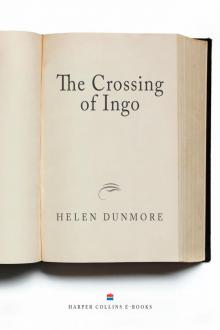 The Crossing of Ingo
The Crossing of Ingo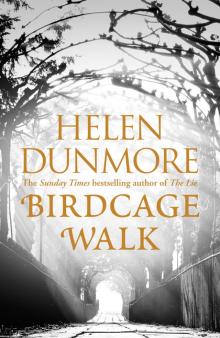 Birdcage Walk
Birdcage Walk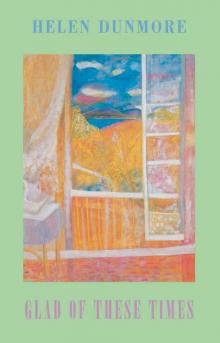 Glad of These Times
Glad of These Times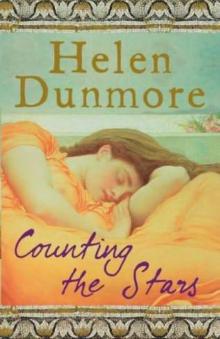 Counting the Stars
Counting the Stars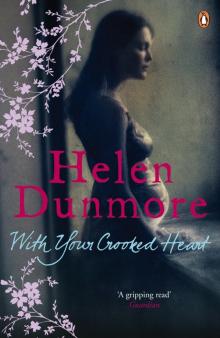 With Your Crooked Heart
With Your Crooked Heart Burning Bright
Burning Bright House of Orphans
House of Orphans Mourning Ruby
Mourning Ruby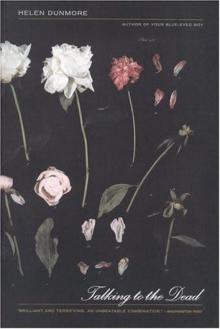 Talking to the Dead
Talking to the Dead Exposure
Exposure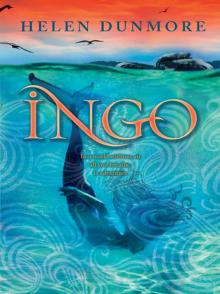 Ingo
Ingo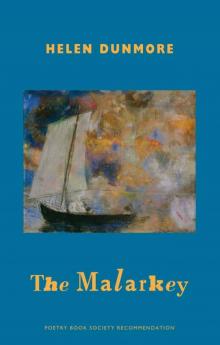 The Malarkey
The Malarkey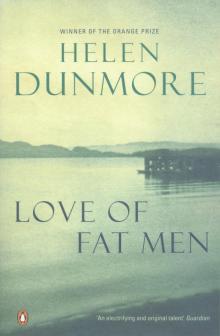 Love of Fat Men
Love of Fat Men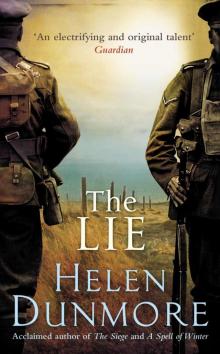 The Lie
The Lie The Siege
The Siege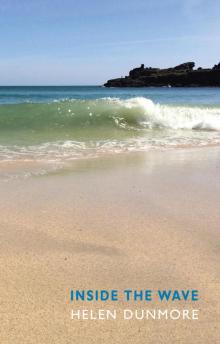 Inside the Wave
Inside the Wave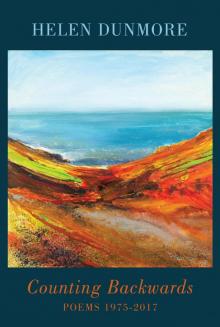 Counting Backwards
Counting Backwards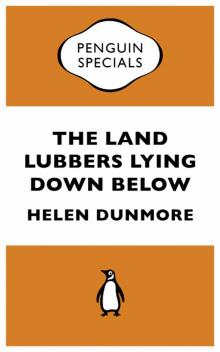 The Land Lubbers Lying Down Below (Penguin Specials)
The Land Lubbers Lying Down Below (Penguin Specials)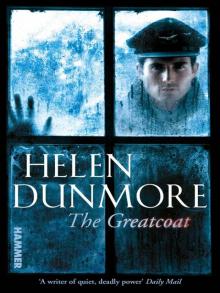 The Greatcoat
The Greatcoat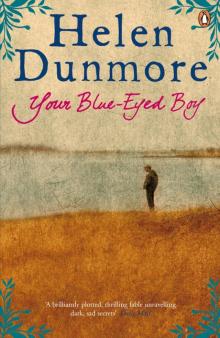 Your Blue Eyed Boy
Your Blue Eyed Boy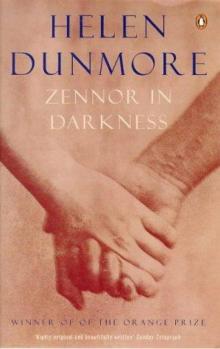 Zennor in Darkness
Zennor in Darkness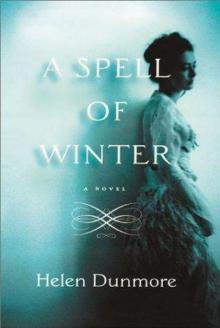 Spell of Winter
Spell of Winter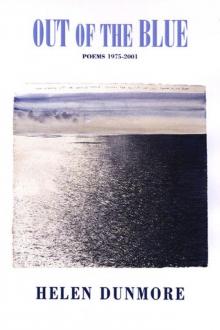 Out of the Blue: Poems 1975-2001
Out of the Blue: Poems 1975-2001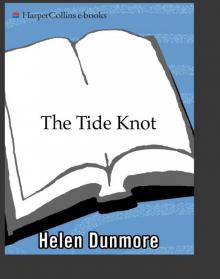 Tide Knot
Tide Knot The Betrayal
The Betrayal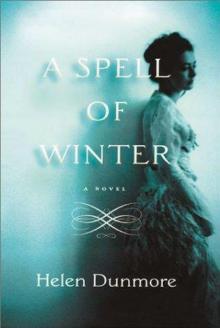 A Spell of Winter
A Spell of Winter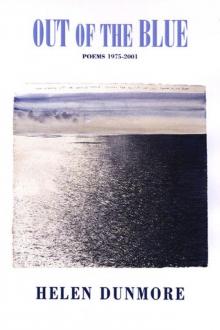 Out of the Blue
Out of the Blue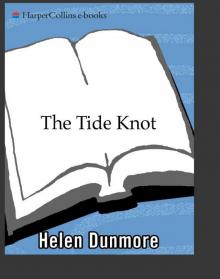 The Tide Knot
The Tide Knot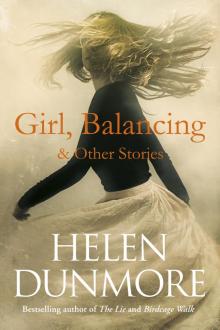 Girl, Balancing & Other Stories
Girl, Balancing & Other Stories Betrayal
Betrayal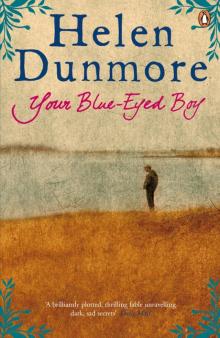 Your Blue-Eyed Boy
Your Blue-Eyed Boy